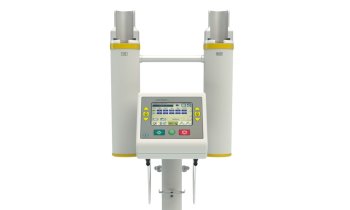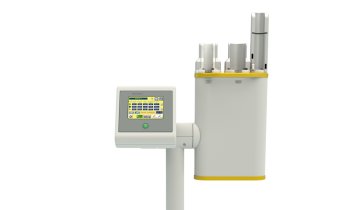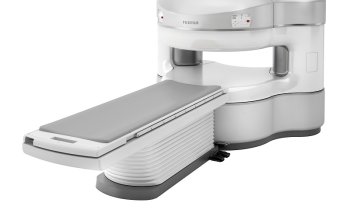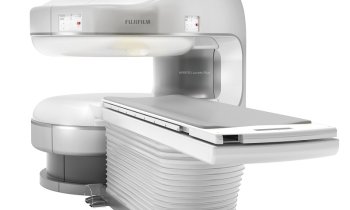MRI and magnetic fields
EU Directive postponed for amendment
The European Commission (EC) has postponed the EU Directive that would have affected the use of MRI until 30 April 2012, to allow time for a substantive amendment to be adopted.
The Alliance for MRI said it welcomes the Commission’s statement that ‘… the future amendment will aim to ensure that limits will not have an adverse effect on the practice of MRI’ and the recommendation to Member States to put the transposition of the current Directive on hold.
‘MRI is a powerful, non-invasive and safe diagnostic and research tool,’ said Professor Gabriel Krestin, Professor of Radiology at Erasmus MC, University Medical Centre Rotterdam, in the Netherlands, and a leading member of the Alliance for MRI. ‘However, its application often relies crucially on the presence of a healthcare worker or researcher. If the EC legislation were implemented, it would almost certainly impact on patient welfare and be a major setback for scientific research, denying patients innovative treatments in the future.’
In June 2007, the Alliance for MRI held a lunch at the European Parliament with Commissioner Spidla to discuss research undertaken by Professor Stuart Crozier of Brisbane University, Australia* that vindicated the Alliance’s concerns.
In addition to its serious impact on healthcare, the Alliance believes the Directive would threaten Europe’s position as world leader in MRI research, as recognised in the Nobel Prize awarded to Sir Peter Mansfield. MRI is a leading example of where the EU stands in cutting edge research.
‘We look forward to working with the European Commission prior to the proposal to amend the directive,’ Professor Krestin said. ‘It is essential that the European Commission assesses closely the full impact the directive will have, taking into consideration the social, economic and environmental impact of the legislation. Any new legislation must be evidence-based and founded on sound science. There has been no proven harmful effect of MRI to either patients or workers over the past 25 years, during which time over 500 million examinations have been undertaken.’ The Alliance for MRI believes that it is essential to evaluate the real risk to patients which would be brought about by impeding the full use of MRI, against the notional and unproven risk to workers.
The safety of MRI workers is already regulated by the EU Medical Devices Directive (amend. Direct 93/42/EEC) and the established MR safety standard IEC/EN 60601-2-33 (as amended to include users/workers). The IEC standard establishes limit values for time-varying electromagnetic fields which have been set, so that any danger to patients and workers is excluded.
* Study Commissioned by the UK Health and Safety Executive
http://www.hse.gov.uk/research/rrpdf/rr570.pdf
Magnetic Resonance Imaging (MRI) scans produce detailed pictures of the inner structure and function of patients’ bodies using magnetic fields and radio waves. Its use has become an essential tool in diagnosing and treating illnesses such as cancer, cardiac diseases and neurological problems, and in medical research for the same disorders.
The EU Physical Agents Directive 2004/
40/EC (EMF), however, would prevent medical staff from assisting or caring for patients during MRI imaging, due to concern over the effects of the magnetic fields generated.
The Alliance for MRI, which represents a coalition of European Parliamentarians, patient groups, leading European scientists and the medical community, has campaigned to bring attention to the potential loss to patients.
‘The increase in cancer survival seen over the past decades is, to a large extent, due to more precise diagnostic tools - MRI included,’ said Professor Dag Rune Olsen, Chairman of ESTRO Physics Committee. ‘Impeding the medical use of MRI would have severe impact on treatment out-come of cancer patients in Europe. The European Commission must learn from their experience with this Directive and consult widely before implementing Directives that impact negatively on research and patient care.’
14.11.2007










